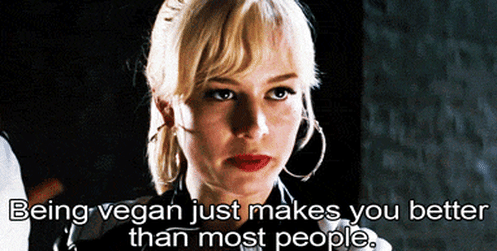What Should You Eat?
by Erik Castiglione
Greetings Relentless Family!
We just kicked off a nutrition challenge for 30 of our members, but I want to show some love to everyone, especially those who were interested in the challenge but got boxed out because it sold too quickly. There have always been sensationalist headlines regarding nutrition. Most recently: red meat isn’t as bad as was once reported, and yet a new Netflix documentary says that plant-based diets are superior to omnivorous ones. In the 1980’s and early 1990’s, dietary fat made you fat, and then in the late 90’s and 2000’s, suddenly, carbohydrates were the enemy. With so many conflicting viewpoints, what do we believe?
First, let’s get some basics out of the way. Protein, fat, and carbohydrates are the 3 macronutrients, meaning that your body needs them in large amounts, and they each have caloric values. Protein builds and repairs tissues, fat helps with hormone production/regulation and vitamin absorption, and carbohydrates serve as the body’s main source of energy (broken down into glucose). In the absence of carbohydrates, the body will convert excess protein into glucose (gluconeogenesis is the fancy name of this process). If there’s no carbs and no excess protein, the body will go into ketosis to burn fat stores for energy (this is the basis of the ketogenic diet). For survival, fats and protein are needed. For high intensity performance (like what we do in the gym), MOST PEOPLE perform best with carbs as their main fuel source. That being said, everyone is unique, so different combinations will work for different people.
Second, it’s time to stop assigning morality to food. I mean this in two ways:
1. Foods are not inherently good or bad; you simply make more or less optimal choices. If you have a day completely comprised of less optimal choices, this doesn’t make you a bad person, or a failure at life. Hopefully you enjoyed your indulgence and didn’t physically feel like crap after. If you did, there’s no reason to compound it by mentally beating yourself up. You can always make more optimal choices at your next meal.
2. Your diet is not your religion, it’s not your identity, and it doesn’t make you superior to other people. It’s time we stop judging people for what they eat. You’re paleo? Good, I’m glad it works for you. If you lecture people about our ancestors not eating grains, I’m going to reclaim bacon, dark chocolate, wine, and tequila and revoke your paleo card for eating them. You’re a vegan? I’m happy you found a lifestyle that suits your needs. If you start judging others for eating meat, I’ll judge you for your leather car seats, boots, and coat.
Now, onto what works. With the internet literally at our fingertips all day, the amount of information available can be overwhelming. In fact, you can find a study to back up pretty much any viewpoint these days.
Since nutrition research is ongoing and evolving, there are few absolutes. Instead, we must look at the preponderance of the studies, and see where they agree. Based on cumulative reviews of various studies, all researchers can agree that for general health, BOTH food quality AND quantity matter. Most of your food should be of high quality. This means fresh fruits and veggies, whole grains, lean cuts of meat, and minimally processed foods. Furthermore, for survival, you need at least 10% of your calories to come from fat, and 10% to come from protein. THAT’S IT! That’s where consensus ends.
Beyond those constraints, find what works for you. Eliminate your allergens and intolerances, find quality foods you enjoy, and base your diet around that. Want to eat meat? Great! Try to eat like a vegetarian that happens to eat meat (you can never have enough veggies). Also, KFC and Popeyes ARE NOT quality sources of protein. Want to be plant based? Awesome. Just be aware that each individual protein source is incomplete (i.e. doesn’t have all essential amino acids). Soy alone won’t cut it; make sure you get your proteins from a variety of sources. Specific quantities of each macronutrient can be tailored to you, based on your goals and how they make you feel. Should you go low carb, or low fat? Either can work! Need a starting point for how much to eat? Click here! There’s a lot of individual variability when it comes to diet, so play with it and find what helps you feel the best. As long as it works for you and is sustainable for your lifestyle (i.e. you can be consistent with it), then you’re on the right track. If you need help dialing in your choices or controlling your portions (and you don’t want to wait for our Spring 2020 nutrition challenge) check out our coaching/consulting options here. In the meantime, focus on quality foods, eat until your sated (not stuffed), and enjoy the occasional indulgence. It’s just food!

